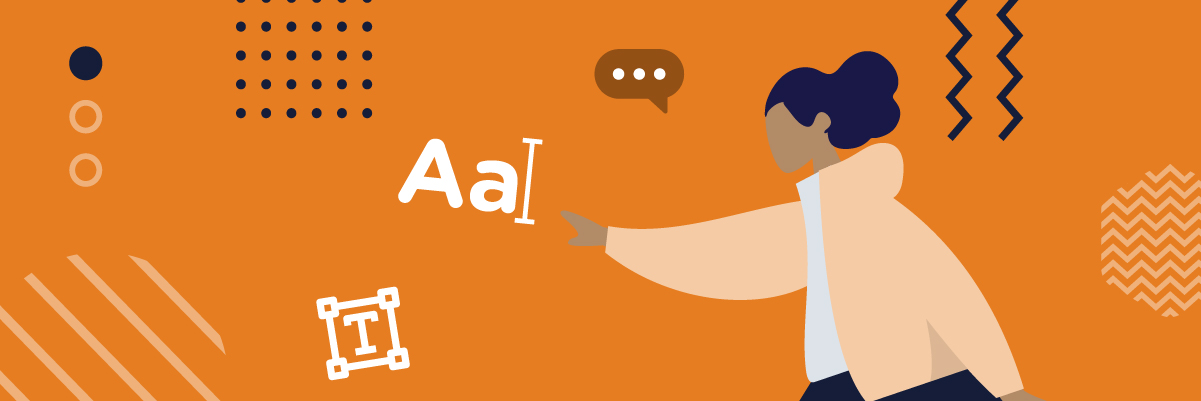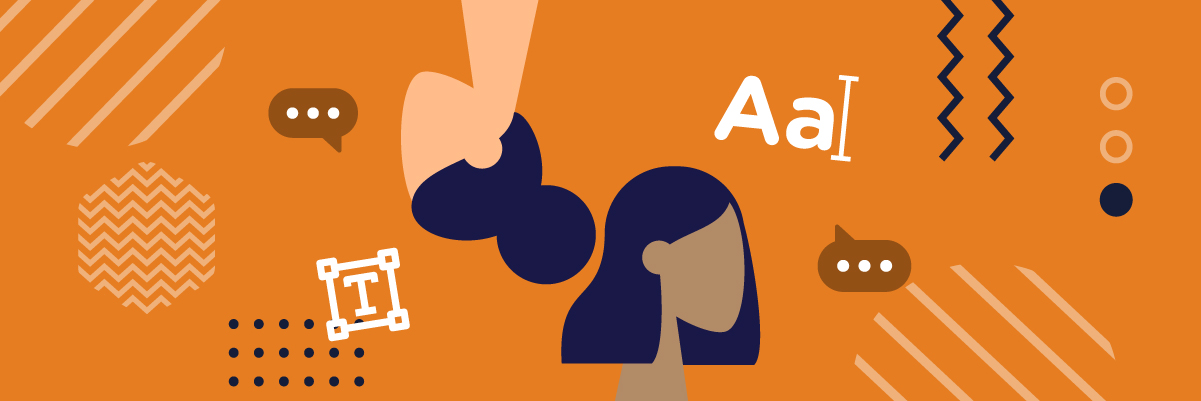Punctuation…this sweet, simple word strikes fear in the heart of so many people. Okay, maybe it’s not a sweet or simple word; it’s actually pretty complicated and confusing. Nonetheless, one little punctuation error can wreak havoc on an otherwise beautiful piece. Make sure to know your punctuation and how to avoid common punctuation mistakes. Or else, know how to find a great proofreader.
What’s so important about punctuation?
We all learned it in school. Or maybe I should say we were all supposed to learn it. Some of us took to it like a labrador retriever to water, others would rather go for a long drive in rush hour traffic than learn about commas or semicolons. But even if you hate punctuation and can’t wrap your head around when to use an apostrophe or the difference between brackets and braces, it’s a pretty important part of language.
Missing punctuation
Ok, let’s take a look at this passage from the beautifully written, classic novel from the 1920s, The Great Gatsby, by F. Scott Fitzgerald (oh, and by the way, we are leaving out most of the punctuation):
Suddenly one of the gypsies in trembling opal seizes a cocktail out of the air dumps it down for courage and moving her hands like Frisco dances out alone on the canvas platform. A momentary hush the orchestra leader varies his rhythm obligingly for her and there is a burst of chatter as the erroneous news goes around that she is Gilda Grays understudy from the Follies. The party has begun
I believe that on the first night I went to Gatsbys house I was one of the few guests who had actually been invited. People were not invited they went there. They got into automobiles which bore them out to Long Island and somehow they ended up at Gatsbys door Once there they were introduced by somebody who knew Gatsby and after that they conducted themselves according to the rules of behavior associated with amusement parks. Sometimes they came and went without having met Gatsby at all came for the party with a simplicity of heart that was its own ticket of admission.
I had been actually invited A chauffeur in a uniform of robins egg blue crossed my lawn early that Saturday morning with a surprisingly formal note from his employer the honor would be entirely Gatsbys it said if I would attend his little party that night. He had seen me several times and had intended to call on me long before but a peculiar combination of circumstances had prevented it signed Jay Gatsby in a majestic hand.
With Punctuation
Wait, now read it again:
Suddenly one of the gypsies, in trembling opal, seizes a cocktail out of the air, dumps it down for courage and, moving her hands like Frisco, dances out alone on the canvas platform. A momentary hush; the orchestra leader varies his rhythm obligingly for her, and there is a burst of chatter as the erroneous news goes around that she is Gilda Gray’s understudy from the Follies. The party has begun.
I believe that on the first night I went to Gatsby’s house I was one of the few guests who had actually been invited. People were not invited — they went there. They got into automobiles which bore them out to Long Island, and somehow they ended up at Gatsby’s door. Once there they were introduced by somebody who knew Gatsby, and after that they conducted themselves according to the rules of behavior associated with amusement parks. Sometimes they came and went without having met Gatsby at all, came for the party with a simplicity of heart that was its own ticket of admission.
I had been actually invited. A chauffeur in a uniform of robin’s-egg blue crossed my lawn early that Saturday morning with a surprisingly formal note from his employer: the honor would be entirely Gatsby’s, it said, if I would attend his “little party” that night. He had seen me several times, and had intended to call on me long before, but a peculiar combination of circumstances had prevented it — signed Jay Gatsby, in a majestic hand.
Totally different vibe, eh? We took out commas, semi-colons, apostrophes, colons, dashes, hyphens, quotations, question marks. It’s a totally different read.

And what about this simple sentence:
Let’s eat, kids!
compared to
Let’s eat kids!
Now you get it, right?
Good use of punctuation can not only set a mood, but a simple comma has the ability to change the complete meaning. That’s the simple truth of punctuation. And it’s not just for writers. Transcribers and translators need to be adept at punctuation and know how to do their job without any punctuation mistakes.
The Plight of the Punctuation Error
The thing is, a great piece of work can be tossed out because of a punctuation error. We’ve all heard the story of the perfect candidate who had a punctuation error on his resume. The hiring guys threw it out, never giving him a chance. Where could he be now if he had just used that comma correctly?
Another thing is that correct punctuation usage simply gets your point across. It shows you have authority, know how to express yourself, and have command of the language. Plus, it allows your writing to make sense. Sure, you can still have grammatical mistakes even if all of your punctuation is correct, but correct punctuation is a step in the right direction.
On the flip side, bad punctuation and a piece full of punctuation mistakes take away that credibility. That single punctuation error can be the demise of an otherwise great piece.
Let’s start with this punctuation error. I bet you’ve seen it.
Happy Holidays from the Davis’s
Hmmm, do you see it? Do you see that glaring, textual punctuation error?
A quick grammatical lesson
Let’s quickly talk about apostrophes. According to the Grammar Girl, apostrophes have two main uses in the English language: They stand in for something that’s missing, and they can be used to make a word possessive. So that means you could use an apostrophe here:
We couldn’t remember his address.
and here:
Maria’s shirt is quite beautiful.
But not here:
Happy Holidays from the Davis’s
You see, there is no omission of anything nor are the Davises possessing anything here. And there it is, the correct plural of the Davis family members. Davis is a noun and follows the rules of pluralization. No apostrophe needed. And this is a very common one we see every December. So, friends, use your punctuation correctly when it comes to your holiday cards.
Other Common Punctuation Mistakes
There are basically 14 types of punctuation, and most of them are in The Great Gatsby excerpt from above.
- period
- question mark
- exclamation point
- comma
- semicolon
- colon
- apostrophe
- quotation marks
- ellipsis
- dash
- hyphen
- brackets
- braces
- parentheses
As much as I wish we had time to discuss them all, we would need another article to do so. So instead, let’s talk about a few of the most common punctuation mistakes. If you can master these, your writing is on a good path.
We already mentioned one that has to do with apostrophes. Now, let’s go back to those confusing little guys for a minute.
It’s and its
This one can get quite confusing because it’s a bit contradictory to what we mentioned before, about using apostrophes for possession. Its shows possession without an apostrophe. We only use it’s to take the place of it is. And if you get confused about which one to use, just substitute the phrase it is, and if it works, use it’s. Confused? You’re not the only one. This is a very common punctuation mistake, but it can come at a high cost.
What if you’re sending out a business email, use the wrong form, and your potential client notices it. They may delete your email, and you’ll never hear from them again. Or you’re working on that social media content and have this simple mistake. You never know what grammar sticklers may unfollow you. Make sure to check your work, have an editor, or get a professional to help out.

Commas
Commas. These guys are the stuff of nightmares. There are just so many ways to use them incorrectly. And there are so many questionable ways to use them. In fact, people get downright dirty when it comes to the infamous Oxford comma. if you’re not sure what that is, it’s that last comma in a list of three or more things. Check it out here:
My goals for 2021 are to master cinnamon rolls, do a handstand, and teach my dog to stay.
It would be completely appropriate to say:
My goals for 2021 are to master cinnamon rolls, do a handstand and teach my dog to stay.
However, when it comes to the Oxford comma, people feel pretty strongly. As Brittney from Grammarly says, Oxford commas are like the Ugg boots of the punctuation world. People either love them or hate them or don’t know what they are. So, though you can’t go wrong with or without it, people sure are opinionated about it.
On the other hand, there are plenty of other ways to misuse a comma. Here are just a few:
- using them incorrectly in a list
- putting them in the wrong place with quotation marks
- using a comma without a necessary conjunction
- adding unnecessary commas
- using commas incorrectly in dates
- confusing them with semicolons
Yes, we know. It’s tough.
Use a Proofreader to Prevent that Punctuation Error
It’s difficult to avoid all punctuation mistakes no matter how great of a writer you are. Even if you know all the rules, you can still slip up. Whether it’s apostrophes, quotation marks, commas, too many exclamation marks…the world is ripe for misused punctuation. That’s what editors and proofreaders are for. In fact, here at Bunny Studio, we have some of the best punctuation gurus around.
Maybe your mom or your colleague can proof your work, or maybe you’d like to work with a professional. Whatever the case, put another set of eyes on anything you write before you send it out, turn it in, or hit publish. A proofreader can catch those little things you may have overlooked. And remember, those little things can mean a lot.
The Big Takeaway on the Dreaded Punctuation Error
The big takeaway here on punctuation mistakes is to avoid them. Give us a shout at Bunny Studio, and our writers and editors can help you create error-free work. We will use our fine-tooth combs and find any errors before your work goes public. Then you won’t even have to worry about a comma splice or sentence fragment. Leave it to us; we got this.
And, now, I’ll go send this to my editor.









